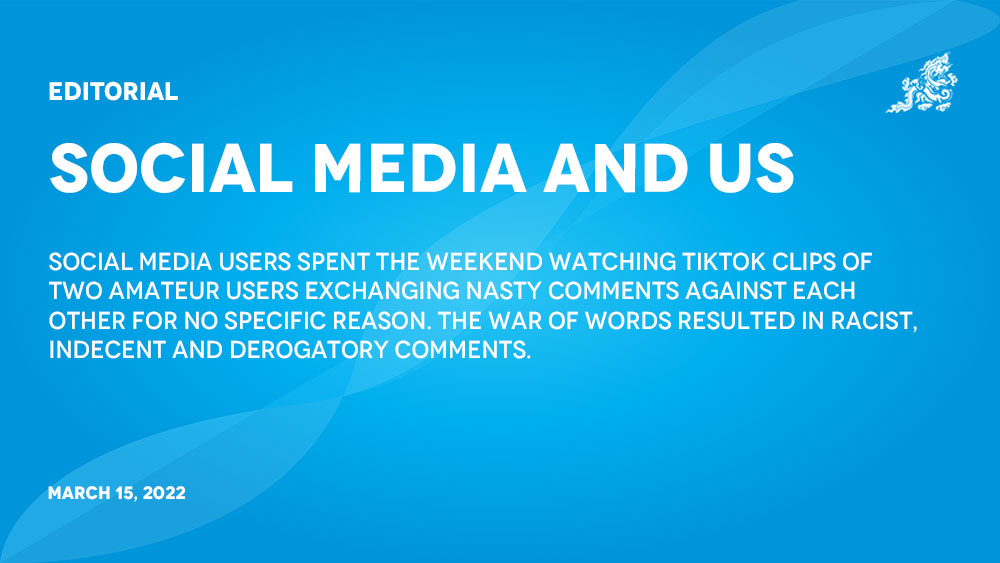Social media users spent the weekend watching Tiktok clips of two amateur users exchanging nasty comments against each other for no specific reason. The war of words resulted in racist, indecent and derogatory comments.
With two thirds of the Bhutanese population active on social media seeking information and entertainment, many enjoyed watching the video clips and shared it. It was worth entertainment for the bored people under lockdown.
Some, however, expressed reservation, fearing that the online hate could go offline and have dire consequences in a small country known for harmony. We have always been talking about the risk of social media as a platform to promote hatred and racism and it is happening now. It is proliferating online.
The woman making the racist comments is believed to have antisocial personality disorder, the most difficult personality disorder to treat or cure. She has come in conflict in law before for aggravated brawl and battery. Mental health experts and civil society organisations have tried to help her, but failed and even given up.
While psychiatrists advice people to disregard comments of mentally insane people, ignoring it will not solve the problem. Social media has already influenced a lot of Bhutanese. It is the main source of news, views and entertainment notwithstanding how media literate people are.
The issue not only raises how the lack of facilities to treat extreme mental health patients impact the society, but also the problems of lack of social media regulation. Mental health problems worsen in the pandemic. Many mentally stable people are losing it under the prolonged pandemic and lockdowns.
There has to be regulations and advocacy about social media ethics as many Bhutanese social media users have little or no awareness. People should differentiate between healthy discourse, entertainment and hatred. A few civil society organisations have recognized this and taken media literacy as an important mandate, but more needs to be done going by what is trending on social media these days.
With social media policy in the country only covering the government sector, perhaps the Penal Code should cover people who commit online crimes. If we cannot stop mentally ill people from ranting online, we have to stop people from sharing it. Agencies cannot close their eyes, but address the issue. There are several authorities that could take this up as a priority.
We have to educate people to use social media meaningfully. Promoting safe and healthy use of social media is necessary. A lot of social media content even if it borders on defamation, hate speech and racism may pass as mere entertainment, but social media could also land a few in serious trouble or cause serious issues.


